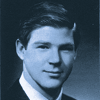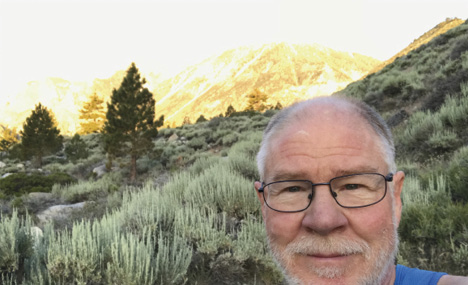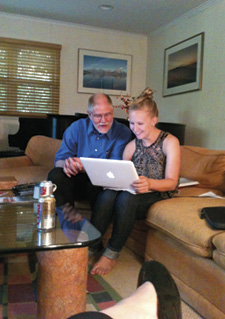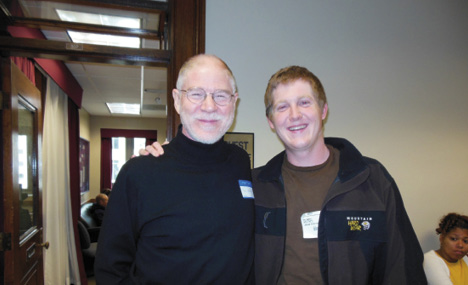Simon N. Whitney – 50th Reunion Essay
Simon N. Whitney
 4004 Montrose Boulevard, Apartment 41
4004 Montrose Boulevard, Apartment 41
Houston, TX 77006
simon.n.whitney@gmail.com
713-208 6647
Spouse(s): Judy Levison (1982–2006)
Child(ren): Diana Leni Whitney, May 17, 1986; Jordan McIntosh Whitney, June 10, 1990
Education: NYU Medical School, (1979), Stanford Law School (1998)
Career: Family doctor, 1982 to 2016; Medical school faculty/scholar, 1999 to present
College: Silliman
Martin Griffin, Dean of Undergraduate Studies, reviewed my file and then put the folder back on his desk. It was the summer of 1972. “We will readmit you,” he said. “But this is your last chance.” His caution was understandable; at that point I had dropped out twice. So I was a student again, studying and writing, if not with joy, then at least with determination.
A year later I developed testicular cancer, which was then often fatal. Thank you, Molly Meyer, RN, who organized the care at Yale Health that saved my life, permitting me to graduate, summa cum tardy, in 1974. My life has been all bonus since then, starting at NYU medical school and then on to a residency in family medicine in Seattle. The biggest bonus was marriage and children—the most profound experience of my life.
My first career was as a family doctor, first in private practice near Seattle, then at Baylor College of Medicine in Houston. Medicine has many hassles but I also found it intensely satisfying to make a difference in my patients’ lives. When I retired from the clinic in 2016, a priest I had cared for wrote in a thank-you note, “I would easily give up my eternity if it would help you live forever.”
My second career has been in medical ethics, beginning with a JD at Stanford Law School in 1998. All research with humans, whether in biomedicine or in the social sciences, is regulated by what is known as the Institutional Review Board system. The system was created to block unethical research, an undeniably important reason. Over time, however, it has become stunningly dysfunctional, but few people are willing to criticize it; it portrays itself as dedicated to ethics, and what kind of person would criticize that? The answer is I would; but I can only do it because I am trained in law, medicine, and ethics.
I’m now writing a book spelling out the system’s problems. For instance, it makes it difficult to study racial discrimination (someone might get sued) or talk with imprisoned jihadists about why they set off a car bomb that killed hundreds of people (they are eager to talk, but, cautions the committee, someone might get hurt). It’s crazy.
It took me years to begin to understand the heart of the system. Its ethics and mechanics are complicated enough, and the literature is endless. But eventually, if I keep reading and thinking and struggling, I can sometimes get beyond the details and ask the questions that are the most profound, or the most obvious (there’s no difference). This work is deeply enjoyable. More than 50 years after I tried it and didn’t like it, I am finally a committed student, and I couldn’t be happier.

Near Big Pine, California

Whitney with Diana

Simon Whitney with Jordan
If the above is blank, no 50th reunion essay was submitted.
